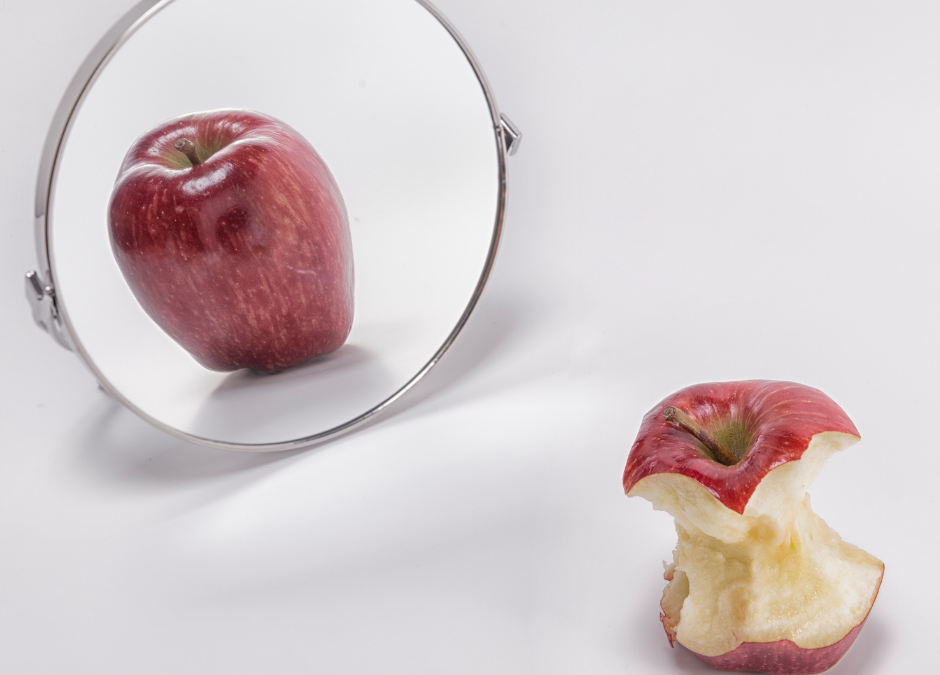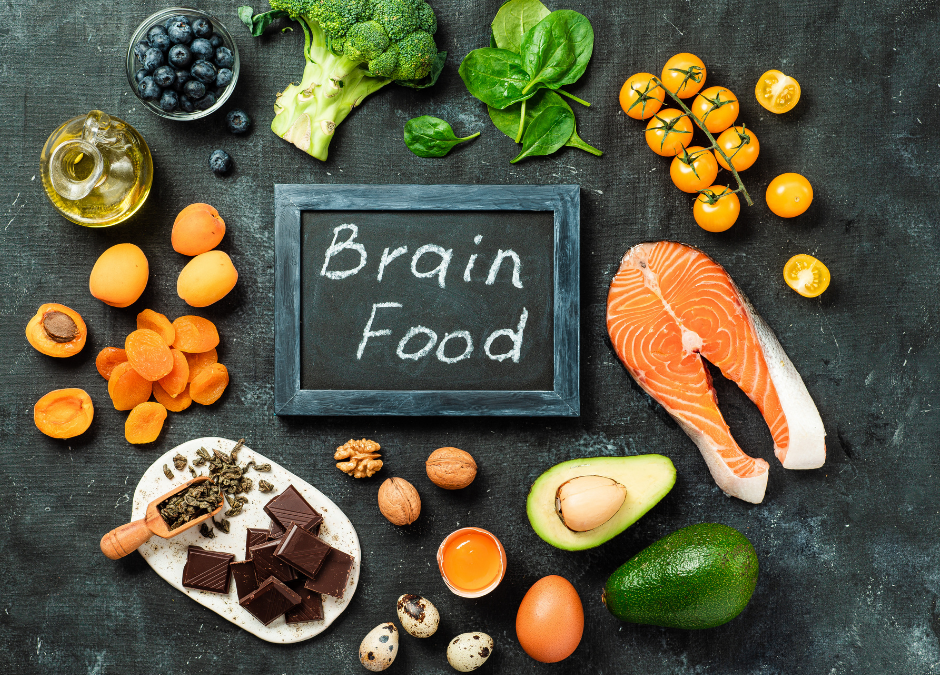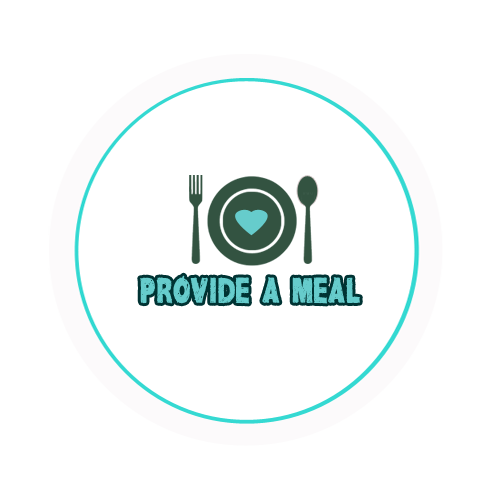
by lennie | Mar 1, 2022 | News, Nutrition
An eating disorder is a mental health condition where you use the control of food to cope with feelings and other situations.
Unhealthy eating behaviours may include eating too much or too little or worrying about your weight or body shape.
Anyone can get an eating disorder, but teenagers between 13 and 17 are mostly affected.
With treatment, most people can recover from an eating disorder.
Types of eating disorders
The most common eating disorders are:
- anorexia nervosa – trying to control your weight by not eating enough food, exercising too much, or doing both
- bulimia – losing control over how much you eat and then taking drastic action to not put on weight
- binge eating disorder (BED) – eating large portions of food until you feel uncomfortably full
Other specified feeding or eating disorder (OSFED)
A person may have an OSFED if their symptoms do not exactly fit the expected symptoms for any specific eating disorders.
OSFED is the most common eating disorder. You can find out more about OSFED on the Beat website.
Avoidant/restrictive food intake disorder (ARFID)
ARFID is when someone avoids certain foods, limits how much they eat or does both.
Beliefs about weight or body shape are not reasons why people develop ARFID.
Possible reasons for ARFID include:
- negative feelings over the smell, taste or texture of certain foods
- a response to a past experience with food that was upsetting, for example, choking or being sick after eating something
- not feeling hungry or just a lack of interest in eating
You can find out more about ARFID on the Beat website.
Check if you have an eating disorder
If you or people around you are worried that you have an unhealthy relationship with food, you could have an eating disorder.
Symptoms of eating disorders include:
- spending a lot of time worrying about your weight and body shape
- avoiding socialising when you think food will be involved
- eating very little food
- making yourself sick or taking laxatives after you eat
- exercising too much
- having very strict habits or routines around food
- changes in your mood such as being withdrawn, anxious or depressed
You may also notice physical signs, including:
- feeling cold, tired or dizzy
- pains, tingling or numbness in your arms and legs (poor circulation)
- feeling your heart racing, fainting or feeling faint
- problems with your digestion, such as bloating, constipation or diarrhoea
- your weight being very high or very low for someone of your age and height
- not getting your period or other delayed signs of puberty
You can read more about the symptoms of:
- anorexia
- bulimia
- binge eating disorder
Warning signs of an eating disorder in someone else
It can be very difficult to identify that a loved one or friend has developed an eating disorder.
Warning signs to look out for include:
- dramatic weight loss
- lying about how much they’ve eaten, when they’ve eaten, or their weight
- eating a lot of food very fast
- going to the bathroom a lot after eating
- exercising a lot
- avoiding eating with others
- cutting food into small pieces or eating very slowly
- wearing loose or baggy clothes to hide their weight loss
Getting help for an eating disorder
If you think you may have an eating disorder, see a GP as soon as you can.
A GP will ask about your eating habits and how you’re feeling, plus check your overall health and weight.
They may refer you to an eating disorder specialist or team of specialists.
It can be very hard to admit you have a problem and ask for help. It may make things easier if you bring a friend or loved one with you to your appointment.
You can also talk in confidence to an adviser from eating disorders charity Beat by calling their adult helpline on 0808 801 0677 or youth helpline on 0808 801 0711.
Getting help for someone else
It can be difficult to know what to do if you’re worried that someone has an eating disorder.
They may not realise they have an eating disorder. They may also deny it, or be secretive and defensive about their eating or weight.
Let them know you’re worried about them and encourage them to see a GP. You could offer to go along with them.
The eating disorder charity ‘Beat’ also has information on:
- what to do if you’re worried about a friend or family member
- what to do if you’re worried about a pupil
- what to do if you’re worried about an employee
- supporting someone with an eating disorder
Treatment for eating disorders
You can recover from an eating disorder, but it may take time and recovery will be different for everyone.
If you’re referred to an eating disorder specialist or team of specialists, they’ll be responsible for your care.
They should talk to you about the support you might need, such as for other conditions you have, and include this in your treatment plan.
Your treatment will depend on the type of eating disorder you have, but usually includes a talking therapy.
You may also need regular health checks if your eating disorder is having an impact on your physical health.
Your treatment may also involve working through a guided self-help programme if you have bulimia or binge eating disorder.
Most people will be offered individual therapy, but those with binge eating disorder may be offered group therapy.
Read more about the different treatments for:
- anorexia
- bulimia
- binge eating disorder
Treatment for other specified feeding or eating disorder (OSFED) will depend on the type of eating disorder your symptoms are most like.
For example, if your symptoms are most like anorexia, your treatment will be similar to the treatment for anorexia.
What causes eating disorders?
We do not know exactly what causes eating disorders.
You may be more likely to get an eating disorder if:

by lennie | Feb 23, 2022 | News
Palm oil is formed from the fruit of the African oil palm. It’s been a vital kind of oil for several millennia, however, over the past several decades, it’s become one of the most produced oils within the world. This {can be} because vegetable oil is extremely versatile — it’s semi-solid at temperature so it can be used as a variety, it’s immune to oxidation so it can make products last longer, and it can withstand high temperatures making it perfect for frying food.
The production of vegetable oil has led to deforestation and habitat destruction for orangutans, elephants, and rhinos. The problematic production of oil has gained widespread attention in recent years.
However, it’s not just the oil’s production that’s controversial, studies conflict on whether palm oil can provide health benefits.
Palm oil is rich in antioxidants, one of which is vitamin E. This vitamin is critical for keeping your immune system healthy and for helping your cells communicate. Studies show that getting enough vitamin e in your diet can reduce your risk of cardiovascular disease and certain forms of cancer.
Potential Health Benefits of palm oil:
Palm oil may be a great source of antioxidants, however, the identical aspects that make vegetable oil useful may sometimes cause complications for people with certain medical conditions.
Some of the health benefits that scientific studies currently support include:
Better Brain Health
The vitamin E found in vegetable oil has been connected to improved brain health. this way of E, referred to as tocotrienol, has been shown to shield brain tissue from dangerous free radicals more effectively than other antioxidants. In fact, one study showed that palm oil tocotrienols may even halt the progression of brain lesions. Yet, more studies are needed to further support these findings.
Promotes Heart Health
Certain studies appear to indicate that the vitamin e in vegetable oilcan also improve heart health. The antioxidant effects of fat-soluble vitamin found in oil seem to reduce or perhaps halt the progression of heart disease in some patients. While more studies must be done to replicate this effect, oil extract could also be useful for people fighting heart condition.
Potential Risks of Palm oil:
Because palm oil may be a dense source of nutrition, it’s going to have negative effects on some people. Consider the following before using oil in your cooking:
Increased Cholesterol Levels
While some studies suggest that palm oil decreases cholesterol levels, others suggest that it may raise “bad” cholesterol levels. These studies compared palm oil to other liquid oils likeolive oil, and generally found that palm oil performed worse than alternatives. One study found that palm oil increased cholesterol in healthy individuals.
Linked to Atherosclerosis
Fresh oil and older oil show significantly different levels of tocotrienol. due to this, reheated vegetable oil shows far fewer benefits than fresh vegetable oil. In fact, reheated oilmight not just lose the gutsbenefits of fresh oil, it’s going to actually increase your risk of heart diseaselike atherosclerosis. If you’rein danger for cardiovascular disease, avoid eating reheated palm oil or foods containing reheated palm oil.
High in Saturated Fats
Compared to other liquid oils, oilis comparatively high in saturated fats. palm oil is about 34% saturated fat, while olive oilis a smaller amount than half that. Saturated fats are linked to an increased risk of heart disease and chronic health conditions.
Download PROVIDE A MEAL app and feed someone today! 


by lennie | Feb 4, 2022 | News, Uncategorized
We all know that it is always important to nourish your body with clean, organic and unprocessed foods, however during times of spiritual growth or awakening (Spiritual awakening is a term given to describe a subjective experience in which an individual’s ego transcends their ordinary, finite sense of self to encompass a wider, infinite sense of truth or reality.) it is even more important that your body is nourished with foods to support your changing vibration. Eating certain foods are also important during times of change, times of awakening and times of high emotional stress.
As your vibration level moves up in frequency, it can cause your energy to feel displaced, shaky or even unstable. You may even start experiencing bodily sensations, vivid dreams or feel sensitive towards others. During this time, it is important that you nourish your body with foods that are going to not only support you through this process but also support your pineal gland.
The pineal gland is the “seat of consciousness” and is often referred to as the third eye. It is responsible for our dreams, visions and being able to connect us with our higher purpose or source energy. The Pineal Gland has other functions in the body too, however from a more spiritual or esoteric approach, the pineal glad is truly how we awaken into our own consciousness and raise our vibration.
If you are looking to support or enhance your intuition, refocus your energy or need some help with ascension symptoms, here are 5 foods that will help support you:
1. Cold pressed Extra Virgin Olive or Coconut Oil
Healthy fats like those found in olive and coconut oil not only support brain and nervous system function but they also help us to expand our intuition. Often when you first come into your awakening, you may feel anxious or even depressed as you try to adjust to the changes. Eating a diet rich in these fats can help to calm you and keep you balanced through the process.
These fats are also stabilising and will help you to connect with Mother Earth. They can also increase your intuitive connection with nature.
2. Raw Cacao
Cacao is not only high in nutrients and antioxidants but it is also believed to help support the functioning of the pineal gland and enhance your intuition. Raw cacao is also a potent detoxifier and can help shift toxic energy out of your body and aura. It is also highly energizing and can help to stabilise energy levels throughout the day. Cacao can also help to elevate your mood and help you to calm the thoughts in your mind, making it perfect for meditation or mindfulness practices.
3. Beets
Beets help to detox the body of heavy metals and can assist in the cleansing of the pineal gland. Beets are also very grounding and can help you to feel more centered and balanced, especially if you are suffering from ascension symptoms or just feeling ‘out of touch’ with reality.
They can also help you to stay spiritually and emotionally strong around people who may be draining or when you are feeling sensitive to energy.
4. Herbs
There are so many wonderful herbs that support ascension, intuition and awakening. Fresh herbs and herbal teas have such a strong and powerful vibration themselves, so use your intuition to guide you to the right herb at the right time. Herbs can help you to expand your consciousness, heal your body, enhance your psychic abilities and raise the frequency of your vibration. In fact, herbs are amazing at helping you to move through into a higher level of consciousness.
Certain herbs can also help you deal with ascension symptoms and the opening of the chakras. You can read more about this here.
5. Water
Staying hydrated is always important, but during times of ascension it is crucial. Water helps you to detox negative energy and emotions out of your body and also helps to clear toxins.
During times of spiritual growth sometimes the pains and wounds of the past are also uncovered in order to be released. Staying hydrated can help release some of these emotions and can aid in the letting go process.
Staying hydrated also supports the functioning of your brain which in turn, supports the health of the pineal gland and your nervous system.
Water also helps to keep the energy moving throughout your body and can help keep your energy levels up.
Download PROVIDE A MEAL app and feed someone today! 


by lennie | Feb 2, 2022 | Foodtraditions, News
If Jan. 1 wasn’t quite the annual reset you had been hoping for, you may rejoice now by cooking for the Lunar New Year. For the Year of the Tiger, starts on Feb. 1, and the inaugural banquet commences the night time before. In China and different Asian international locations that understand the vacation, including Singapore, Vietnam and South Korea, the festivities can ultimate for 2 weeks, and the ingredients frequently signify guarantees for a higher 12 months ahead. But the instant praise is some thing scrumptious to consume, whether or not you’re making ready a banquet or simply one dish.
1. Peking Duck With Honey and Five-Spice Glaze
– A spotlight of eating place banquets, this dish may be made at home, too, mainly with streamlined strategies from Kay Chun. It continues with the way of life of serving entire chicken to sign abundance. Additionally, it tastes more unique than fowl and seems like a party in each of the cooking method and in serving.
2. Nonya Hokkien Stir-Fried Noodles – The long noodles signify lengthy life, and there are countless versions of Cantonese noodles. This Singaporean version, crowned with egg ribbons and crisp shallots, comes from Sharon Wee, the writer of “Growing Up in a Nonya Kitchen.” She shows topping it with highly spiced sambal belacan, a warm sauce made savory with shrimp paste.
3. Thit Heo Kho Trung (Pork and Eggs in Caramel Sauce) -The rich combination of beef and eggs receives its savory taste from fish sauce and a bit sweetness from coconut water and caramel, which additionally brings a welcome sour edge. Its commonly served with the dish over steamed rice and with pickled bean sprout salad to provide a fresh contrast.
4. Tang Yuan – The sticky texture and spherical form of those Chinese New Year dessert dumplings signify own circle of relatives unity, and consequently promise togetherness for the 12 months ahead. With the soft bite of a marshmallow and a nougat-like sesame filling, those rounds are served in a candy ginger soup. They’re clean to shape and freeze well, so that you can put together a massive batch straight away and consume them in the course of the holiday season.
5. Mandu The Korean New Year, Seollal, is honoured with tteok mandu guk, a steaming soup full of sticky rice cakes, which one is meant to consume a good way to see their subsequent birthday. Mandu, dumplings, aren’t necessary, however they flavor scrumptious withinside the broth, mainly whilst crafted from scratch the use of this recipe from Julya Shin and Steve Joo.
6. Pancit Palabok (Rice Noodles With Chicken Ragout and Shrimp) In the Philippines, noodles for durability tackle many forms, and this dish is a few of the richest. Finely shredded fowl simmers right into a aromatic sauce to thicken it, and plump shrimp pinnacle the noodles, in conjunction with boiled eggs and crunchy chicharron.
Download PROVIDE A MEAL app and feed someone today! 


by lennie | Jan 22, 2022 | News, Uncategorized
Past studies hinted that coffee might have a dark side, newer research suggests that it may actually have health benefits.
How so? It’s hard to look at just one aspect of diet and connect it to a health condition because so many other factors that could play a role. For example, early research on coffee didn’t always take into account that heavy coffee drinkers also tended to use tobacco and be sedentary.
When newer studies adjusted for such factors, they found a possible association between coffee and decreased life. Coffee may offer some protection against:
- Parkinson’s disease
- Type 2 diabetes
- Liver disease, including liver cancer
- Heart attack and stroke
Coffee still has potential risks, mostly due to its high caffeine content. For example, it can temporarily raise blood pressure. Women who are pregnant, trying to become pregnant or breastfeeding need to be cautious about caffeine. High intake of boiled, unfiltered coffee has been associated with mild increase in cholesterol levels.
The bottom line is that your coffee habit is probably fine and may even have some benefits. But if you have side effects from coffee, such as heartburn, nervousness or insomnia, consider cutting back!
Download PROVIDE A MEAL app and feed someone today! 


by lennie | Nov 15, 2021 | News, Nutrition
You are what you eat. While you will not literally transform into the items you eat, your nutritional choices certainly play a very important role in your overall health. Not only that, but there are certain foods which will even help to keep up or improve the health of your brain. Eating the proper foods to stay your brain healthy can dramatically decrease your risk of developing neurological problems later in life. Here are a number of the simplest foods for your brain:
Blueberries
Blueberries contain a compound that has both anti-inflammatory and antioxidant effects. this implies that blueberries can reduce inflammation, which reduces the danger of brain aging and neurodegenerative disease. Furthermore, antioxidants have also been found to assist in communication between brain cells.
Eggs
Eggs are rich in B vitamins and a nutrient called choline. B vitamins help to slow cognitive decline and deficiencies in B vitamins arerelated to depression and dementia. The body uses choline to makethe neurotransmitters accountable for mood and memory.
Fatty Fish
Fish like trout, salmon, and sardines contain large amounts of omega-3 fatty acids. Not only is 60% of your brain composed of fat containing omega 3s, but it’s also essential within the production of brain and nerve cells. Deficiencies in omega 3s can cause learning problems and depression.
Fruits
Certain fruits like oranges, bell peppers, guava, kiwi, tomatoes, and strawberries, contain high amounts of water-soluble vitamin. vitamin C helps prevent brain cells from becoming damaged and supports overall brain health. In fact, a study found that antioxidantcan potentially prevent Alzheimer’s.
Leafy Greens
Leafy greens like broccoli, collards, spinach, and kale contain various nutrients like fat-soluble vitamin, lutein, folate, and beta carotene. naphthoquinone helps with the formation of fat inside brain cells and has been seen to enhance memory.
Nuts
Nuts contain healthy fats, antioxidants, and fat-soluble vitamin, which are found to be beneficial for both the brain and heart. Walnuts, particularly, also contain omega-3 fatty acids to further improve brain function. In fact, nuts are linked to improved cognition, sharper memory, and slower mental decline.
Pumpkin Seeds
Pumpkin seeds contain antioxidants, furthermore as zinc, magnesium, copper, and iron. The brain uses zinc for nerve signaling, magnesium for learning and memory, copper for controlling nerve signals, and iron to forestall brain fog.
Tea and low
Both tea and low contain caffeine, which boosts brain function and improves alertness, still as antioxidants. tea also contains the aminoalkanoic acid L-theanine which might cross the barrier and increase neurotransmitter activity.
Turmeric
Turmeric may be a dark-yellow spice that’s commonly found in seasoner. Not only is it a robust antioxidant and anti inflammatorysubstance, but it can undergo the barrier to enter the brain directly. Tumeric has been related to improved memory, less depression, and also the growth of latest brain cells.
Whole Grains
Whole grains like bread, pasta, barley, brown rice, oatmeal, and bulghur contain fat-soluble vitamin, which is employed to shieldand preserve healthy cells. In protecting these cells, antioxidantpreserves brain function and prevents neurodegeneration.
Download PROVIDE A MEAL app and feed someone today! 












